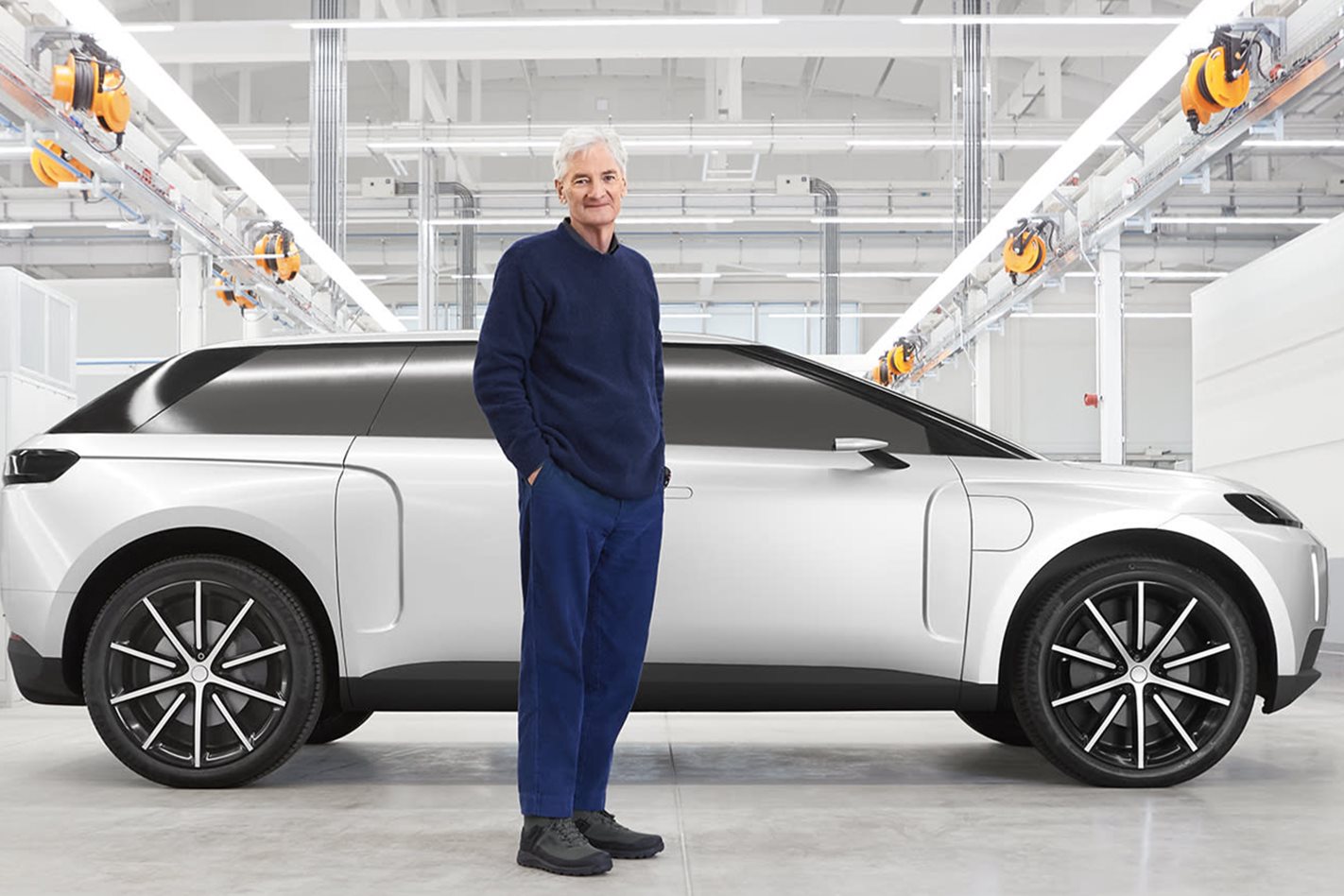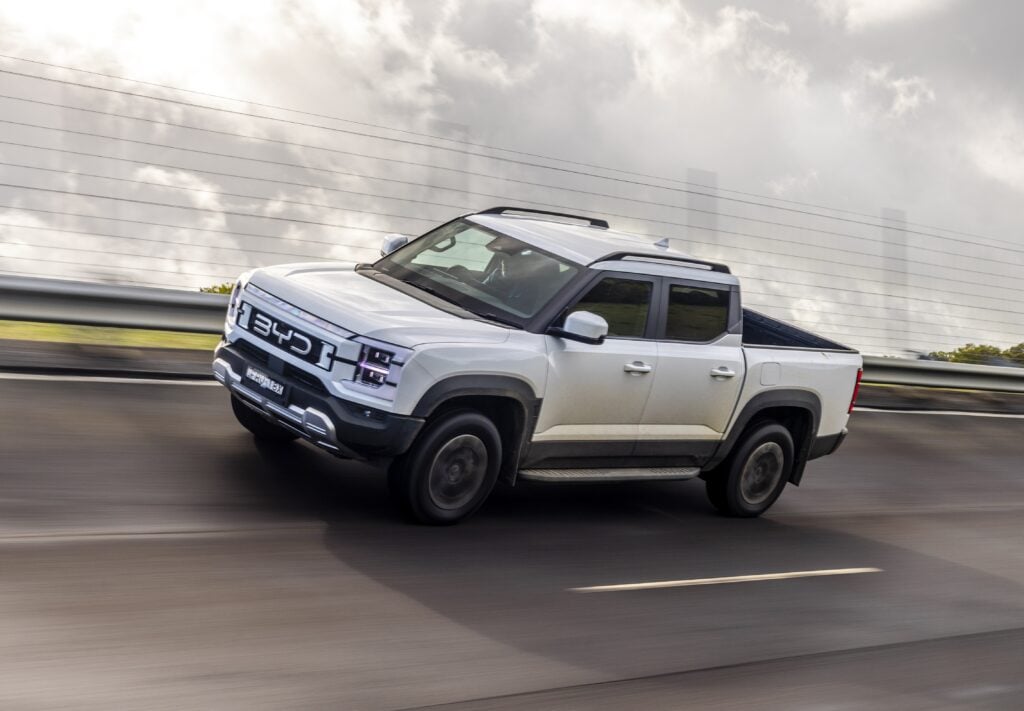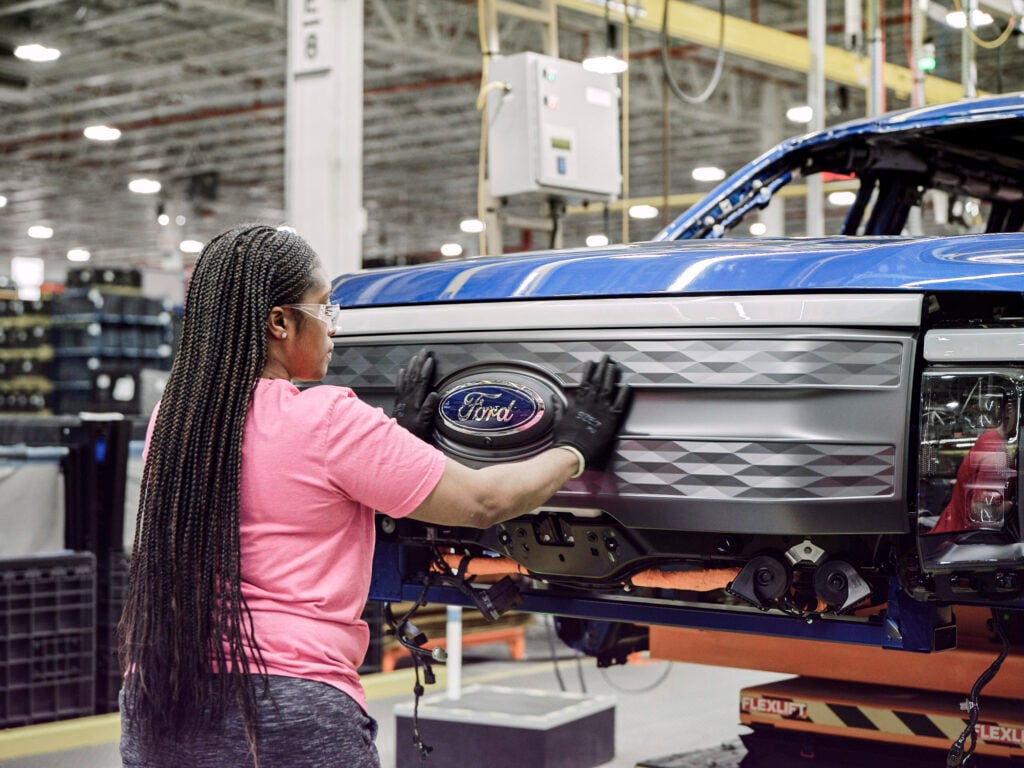It sits beneath a dust cover in the back of a hangar in Hullavington, UK. James Dyson’s billion-dollar folly is an SUV with seven seats, sleek styling, some beautiful interior design quirks, a claimed range of 965km and no viable business case.
“Electric cars are very expensive to make. The battery, battery management, electronics and cooling are much more expensive than an internal combustion engine,” Dyson told the Financial Times, rueing the fact that the car would need to retail at $300,000 in order to break even.
At that price point, it would be hopelessly undercut by its rivals.
The three-year development project, which employed 500 workers was quietly shelved last October. What went wrong?
Others “are making huge losses on every electric car they sell”, said Dyson.
“They’re doing it because it lowers their average CO2 and NO2 emissions overall, helping them to comply with EU legislation.
“I don’t have a fleet. I’ve got to make a profit on each car or I’d jeopardise the whole company … it was too risky.”
Elon Musk understands those risks better than most.
In twelve years of selling electric cars, Tesla has never made an annual profit. It ended 2019 with a A$1.3bn loss, which is good compared to its two previous years.
But even before coronavirus halted the Fremont lines, Musk had acknowledged that “we’re not too worried about demand. We’re worried about production.”
So are the ‘legacy manufacturers’ really underwriting EV costs with the sales of internal combustion-engined cars as Dyson claims?
If they are, it’s not a durable strategy.
In September of last year, Daimler’s development chief Markus Schafer said that “there are no new plans for further ICE development.”
That draws a line in the sand when its EVs need to pay back.
Even with subsidies, it’s hard to make anything with a battery stack up on the balance sheet. One German premium manufacturer confided to Wheels that the cost of building a plug-in hybrid version of a model is double that of building a conventional ICE version.
Volkswagen’s broad strategy of custom EV platforms could see it become the first global auto manufacturer to make EVs profitable.
A report by Swiss investment bank UBS points to VW’s EV line being in the black from 2022.
It’ll need to kick some A$54bn worth of development budget into the group’s coffers, repaying a line of EVs across its mass market brands. It’ll be a stretch.
The three hurdles for electric vehicles to overcome
- Changing the buyer focus away from cost per kilometre and towards overall richness of ownership experience.
- In 2010 batteries cost $1100/kWh. In 2019, $156. The magic $100 breakover point is predicted for 2024.
- US consultants McKinsey crunched the numbers and could only see profits with decontented dedicated EV platforms.







